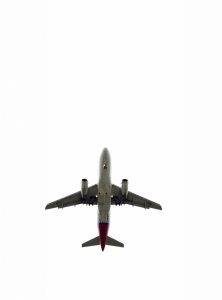PVA participates in round table on passengers with disabilities
By PVA National Staff
On November 14, the House Transportation and Infrastructure Committee, Subcommittee on Aviation held a round table entitled, “From Curb to Gate and Back Again: The Air Travel Experience for Persons with Disabilities.” Subcommittee Chairman Rick Larsen (D-WA) noted that this was the first time the committee had held a round table on issues of passengers with disabilities. Thirteen members of the subcommittee attended the meeting and asked questions of the panelists. The panelists included: Ms. Blane Workie, Assistant General Counsel for Aviation Enforcement and Proceedings, Department of Transportation (DOT); Ms. Seena Foster, Deputy Assistant Administrator for Civil Rights and Civil Liberties, Transportation Security Administration; Mr. Tom Devine, General Counsel, Airports Council International; Mr. Doug Mullen, Vice President and Deputy General Counsel, Airlines for America; Mr. Lee Page, Senior Associate Advocacy Director, Paralyzed Veterans of America; Ms. Michelle Erwin, President and Founder, All Wheels Up; and Mr. Ian Watlington, Senior Disability Advocacy Specialist, National Disability Rights Network. Each panelist had an opening statement identifying the work they have done on assisting passengers with disabilities in the air travel experience and was asked to note other issues that are not currently being addressed that could further enhance accessibility.
Ms. Workie spoke about the implementation of the FAA Reauthorization Act of 2018, including implementation of the requirement for airlines to submit on a monthly basis to DOT the number of wheelchairs and scooters enplaned and the percentage returned damaged to passengers with disabilities. Ms. Workie also discussed the Advisory Committee on the Air Travel Needs of Passengers with Disabilities and the requirement for it to look into airline practices for ticketing, pre-flight seat assignments, and stowage of assistive devices for passengers with disabilities. The Advisory Committee will also work with stakeholders, including disability organizations, air carriers, and their contractors, to develop an Airline Passengers with Disabilities Bill of Rights. Ms. Workie further stated that DOT would soon publish a regulation on accessible lavatories in single-aisle aircraft.
Mr. Mullen talked about the work A4A has done over the past few years starting with the negotiated rule making in the summer of 2016, which was convened by DOT to work on the issues of service animals, inflight entertainment and communication, and access to a lavatory on a single-aisle aircraft. He was grateful to PVA for the work the organization is doing with the air carriers, other disability stakeholders, and wheelchair manufacturers to come up with a RESNA standard for wheelchairs in air travel that would alleviate damage from being placed in the cargo holds of airplanes.
Ms. Foster spoke about the TSA Cares Program, which outreaches to different segments of the disability population. She credited PVA for assisting TSA to understand more about catastrophic spinal cord injuries and the needs of PVA members. Also, TSA Cares has a wounded warriors and disabled veterans outreach program. She further spoke of the advantages of TSA Precheck and how they encourage passenger with disabilities to sign up. Ms. Foster also talked about the new technology of screening passengers that will be less invasive in the future. This will include a body heat sensor that will see areas blocked by items identifiable by size and would garner further inspection via a pat down if determined necessary by the TSA agent. She acknowledged that PVA had participated in a preliminary meeting to review the device.
Mr. Page emphasized three areas of concern. First, PVA members are still having trouble in boarding airplanes due to the lack of training of personnel to assist in boarding. Specifically, the transfer process to an aisle chair can be precarious. Second, the path of travel to enter the plane is not accessible like other modes of public transportation and standards of access are needed. Lastly, he spoke of the need for individual recourse when a passenger with a disability is aggrieved by the airline for violations of the law.
Representative Brian Mast (R-FL), a combat disabled veteran, demonstrated his prosthetic leg and the wheel from his wheelchair as assistive devices that are an extension of his body and make him whole again. He directed his comments towards Ms. Foster of TSA and relayed the problems he has had with coming through security and having to be “patted down” or physically searched by TSA agents because they did not understand his disability. Mr. Page added that other problems going through security revolved around the wait time a person with a disability must endure for a same gender officer to arrive to escort the person to a location for more detailed inspection. This waiting time and announcement only draws more attention towards the person with the disability, causing anxiety and embarrassment.



